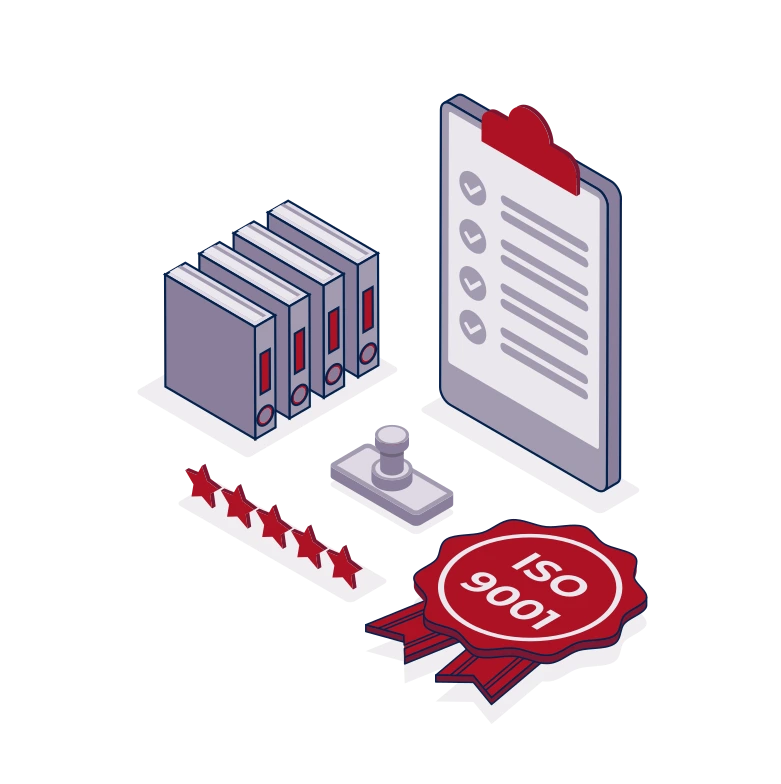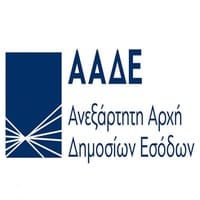Freight Shipping between Qatar and Greece | Rates – Transit times – Duties and Taxes
Why did the cargo ship blush? Because it saw the sea's bottom! All chuckles aside, we understand that getting to grips with matters like deciphering rates, crunching transit times, and demystifying customs regulations can feel as difficult as telling a decent joke. This guide will clear these murky waters for you, providing you with all the essential information you need to move your goods between Qatar and Greece.
It will provide details on different types of freight options, inputs on customs clearance, duties, tax formalities, and offer practical advice tailored specifically for businesses. If the process still feels overwhelming, let DocShipper handle it for you! As a premier international freight forwarder, we manage every step of the freight transport process, ensuring we turn potential challenges into resounding success for you and your business.
Which are the different modes of transportation between Qatar and Greece?
Jetting over deserts, seas, and several countries, you're stuck in the age-old puzzle of how to transport goods from Qatar to Greece. Whether you need speed for perishables or budget-friendliness for bulk goods, each method has its highs and lows. Think of it like choosing between a race car, a delivery truck, or a sailboat - it all comes down to what's in your cargo hold, how quickly you need to deliver, and your budget for the race. Picking the right one can unlock smoother sailing and swifter success in your international trade.
Need help with your shipment?
Need assistance with your shipment? Dont hesitate to contact us even for a simple question. Choose the option that suits you
Live chat with an expert Chat on WhatsApp Free Quote 24hHow can DocShipper help you

Sea freight between Qatar and Greece
Embarking on the vast Mediterranean Sea, learn to masterfully chart the course of your goods from the sunny shores of Qatar to the craggy coasts of Greece. Anchored firmly in benefits, ocean shipping stands as a cost-effective ally for high-volume consignments, despite the humble speed it offers. Qatar and Greece share a buoyant trade relationship, bound together by busy cargo ports. The pulse of Qatar’s trade beats in Hamad Port, with Greece’s heartbeat resonating from the Port of Piraeus, gateways that bind their key industrial centers.
However, for new sailors on this route, the sea isn’t always smooth. Missteps occur as businesses grapple with foreign waters of shipping legislation and customs requirements. Fear not, though, the choppy waters can be tamed with best practices and specifications we will explore in this guide. Think of it like sailing: knowing when to go full sail and when to drop anchor is key to a safe, efficient journey. In the same way, understanding the how-tos of shipping can make your voyage between Qatar and Greece much smoother.
Main shipping ports in Qatar
Hamad Port
Location and Volume: Hamad Port is strategically placed near Umm Al Houl, a town on the southeastern coast of Qatar. The port is significant for its contribution to Qatar’s economy with an estimated annual capacity of over 7.5 million twenty-foot equivalent unit (TEU).
Key Trading Partners and Strategic Importance: Major trading partners include countries like China, the United States, India, South Korea, and Japan. The strategic importance of Hamad Port lies in serving the Qatar Vision 2030 by diversifying the economy and boosting international trade.
Context for Businesses: If you’re a business planning to tap into the Middle East market, especially Qatar, Hamad Port will play a key role. Leveraging the port’s state-of-the-art facilities and its robust trade connections can help you establish and expand your market presence.
Ras Laffan Industrial Port
Location and Volume: Ras Laffan Port is part of Ras Laffan Industrial City, located on the North-Eastern coast of Qatar. This port is crucial to the natural gas industry, supporting the production and export of over 77 million tonnes of Liquified Natural Gas (LNG) annually.
Key Trading Partners and Strategic Importance: Primarily Japan, South Korea, India, China, and Taiwan are significant trading partners given the port’s gas and petroleum products exports. The port maintains vital importance due to its role in the booming energy sector and its contribution to the global market.
Context for Businesses: Ras Laffan Port may be particularly beneficial if your operation involves the gas and petroleum industry. The port’s specific focus on these sectors and its strong commercial network can streamline your supply chain and facilitate smoother operations.
Doha Port
Location and Volume: Located in the heart of the capital city, Doha Port has a shipping volume of over 196,000 TEU. Re-launched as a tourist port, it primarily caters to visiting cruise ships.
Key Trading Partners and Strategic Importance: The port does not host extensive global trade; however, it holds strategic significance for the tourism industry, enhancing Qatar’s image as an attractive tourism destination.
Context for Businesses: If your business is focused on the tourism industry, specifically luxury or cruise line tourism, Doha Port will be crucial. Its pivotal role in the local tourism sector could be leveraged to expand your business in the Qatari market.
Context for Businesses: If your business is focused on the tourism industry, specifically luxury or cruise line tourism, Doha Port will be crucial. Its pivotal role in the local tourism sector could be leveraged to expand your business in the Qatari market.
Should I choose FCL or LCL when shipping between Qatar and Greece?
Are you about to ship goods from Qatar to Greece? Well, pause for a moment. Your decision between Full Container Load (FCL) and Less than Container Load (LCL), commonly known as consolidation, can make or break your shipping experience! Not only does this choice affect your cost and delivery time, it can significantly shape the course of your cargo’s journey across the sea. Take a deep dive with us into these two options as we help you navigate the ebbs and flows of the maritime freight landscape. Prepare to chart a course that’s right for your shipment!
Full container load (FCL)
Definition: FCL, or Full Container Load, means you're dedicating an entire container to your goods alone, typically using either a 20'ft or a 40'ft container.
When to Use: Consider FCL shipping when your cargo volume exceeds 13/14/15 CBM. This option offers safety as the fcl container remains sealed from the origin in Qatar to the destination in Greece.
Example: If you're a furniture business shipping large quantities of stock from Doha to Athens, opting for an FCL allows you to pack a 40'ft container to its maximum capacity. This not only ensures the security of your furniture but also streamlines your shipping process.
Cost Implications: While the cost for an FCL shipment might be higher initially when compared to an LCL, the fcl shipping quote per unit drops substantially when dealing with larger volumes, thus making it a more economical choice for bulkier shipments. Keep in mind, cost may vary depending on whether you choose a 20'ft or a 40'ft container.
Less container load (LCL)
Definition: Less than Container Load (LCL) shipping is a method where cargo from various shippers is consolidated into one single container. This shipping option provides flexibility and price benefits when you're dealing with smaller volumes.
When to Use: Opt for LCL shipping when your cargo volume is less than approximately 15 CBM. It's a more cost-effective and flexible option that ensures your freight won't occupy an entire container.
Example: Let's say you're a Greek olive oil producer with a smaller monthly shipment of 10 CBM to Qatar. Instead of booking a whole container, with LCL shipping, your goods could be combined with those from other companies to fill one container. That way, you'll only pay for the space you use, reducing your overall costs.
Cost Implications: LCL shipment is based on a pay-for-space-used basis, so if your freight is smaller, you spend less. However, LCL Freight has extra steps, such as consolidation and deconsolidation, so additional charges can apply. Despite these, for low-volume cargo, LCL can be an economically feasible method since it avoids the investment of a Full Container Load (FCL). Remember that each lcl shipping quote can vary based on factors like volume, weight, and distance. It helps you optimize your freight costs and manage your supply chain efficiently.
Hassle-free shipping
DocShipper simplifies cargo shipping like no one else. Our ocean freight experts evaluate essential factors such as your cargo's volume, destination, and transport time to determine whether consolidation or full container shipping is best for your business. No more guesswork, all that's required from you is to sit back as we navigate the complexities of freight from Qatar to Greece. Ready to make your shipping experience hassle-free? Reach out to us for a free estimation today!
With an average shipping time of 2-4 weeks, sea freight between Qatar and Greece offers a cost-effective solution for transferring goods. However, various factors, such as the specific ports used, weight of the shipment, and nature of the goods impact the transit time. Therefore, these estimations are subject to change. For a tailored quote, we encourage you to reach out to a reliable freight forwarder like DocShipper, who can provide personalized and accurate information.
To give you a better understanding of average transit times, refer to the text-only table below:
| Freight Ports in Qatar | Freight Ports in Greece | Average Transit Time (Days) |
| Hamad Port | Piraeus Port | 25 |
| Ras Laffan Port | Thessaloniki Port | 23 |
| Doha Port | Heraklion Port | 25 |
*The table showcases average transit times from major ports in both countries — please note, these times are approximations and subject to variations.
How much does it cost to ship a container between Qatar and Greece?
Deciphering shipping costs isn’t as simple as just crunching numbers; many factors come into play. From the Point of Loading and Point of Destination to the nature of goods, carrier choice, and even monthly market fluctuations, each component shapes the final ocean freight rates. We’d love to present you with a simple figure, yet the reality is, your shipping cost between Qatar and Greece could range considerably per CBM.
No need to be overwhelmed though! Our shipping specialists are savvy navigators in these fluctuating waters. They will closely work with you, to ensure you receive the best, most competitive rates, tailored to your individual shipment. We quote on a case-by-case basis, making the uncertainty manageable, and the journey a bit smoother.
Special transportation services
Out of Gauge (OOG) Container
Definition: OOG containers, or Out of Gauge containers, are designed to accommodate cargo that doesn’t fit into standard containers due to their irregular shape or size.
Suitable for: Generally used for large or heavy goods, anything exceeding standard container sizes.
Examples: Construction equipment, machinery parts, windmill wings, or large-scale artwork.
Why it might be the best choice for you: If your business deals with oversized or over-weight items, OOG container could be your go-to shipping option between Qatar and Greece.
Break Bulk
Definition: Break bulk is the shipment of cargo as separate pieces, not in containers, loaded onto the vessel individually.
Suitable for: Used for oversized, heavy, or awkwardly shaped goods that can’t be containerized.
Examples: Large machinery, construction materials, yachts, or steel beams.
Why it might be the best choice for you: If you’re managing loose cargo load that doesn’t fit into standard or OOG containers, break bulk shipping can be an excellent choice.
Dry Bulk
Definition: Dry bulk refers to the transportation of homogeneous commodities in large quantities, often unpackaged form.
Suitable for: Ideal for small particles that are directly loaded into the ship’s hold.
Examples: Grains, coal, iron ore, or fertilizers.
Why it might be the best choice for you: If your business revolves around the transportation of unpackaged loose commodities in high volumes, opting for dry bulk shipping can be immensely beneficial.
Roll-on/Roll-off (Ro-Ro)
Definition: Ro-Ro vessels are designed with a built-in ramp, allowing vehicles to roll on and off the ship under their power.
Suitable for: Any wheeled cargo like cars, trucks, semi-trailer trucks, trailers, and railroad cars.
Examples: Shipment of cars, construction vehicles, or mobile machinery.
Why it might be the best choice for you: For your vehicle shipping needs from Qatar to Greece, a ro-ro vessel could be the most suitable and efficient way.
Reefer Containers
Definition: Reefers are refrigerated containers used for the transportation of perishable and temperature-sensitive goods.
Suitable for: Ideal for goods needing a controlled temperature during transport.
Examples: Medicines, fresh and frozen foods, plants, or chemicals.
Why it might be the best choice for you: If your business involves the export of perishable goods between Qatar and Greece, utilizing reefer containers could be crucial to maintaining your product’s quality.
In conclusion, each type of sea freight shipping option has its unique benefits that might cater to your specific cargo shipping needs. At DocShipper, we’re always ready to guide you on which shipping method may be most advantageous for your business. Don’t hesitate to contact us for a free shipping quote within less than 24 hours.
Air freight between Qatar and Greece
To ship treasures from Qatar to Greece, think of air freight as your magic carpet: swift, dependable, and perfect for small but precious packages like high-end electronics or delicate artwork. It has a knack for ticking off the journey in record time, adding a reliability bonus to your shipping strategy. But, often shippers stumble here – the devil is in the details. Picture this: you’re using the wrong weight formula to estimate the cost of your shipment – like cooking a grand meal but botching up the ingredients. Result? Hefty costs! Bombshell alert: There are tricks of the trade that many overlook, cranking up their costs unnecessarily! Stay tuned as we unfold these secrets and help you master the art of air freight between Qatar and Greece.
Air Cargo vs Express Air Freight: How should I ship?
Juggling shipping choices between Qatar and Greece? Here’s the deal: while air cargo tends to hitch a ride in airlines for longer delivery times, express air freight hops on a dedicated plane for speedy transfers. No more puzzling over logistics jargon – let’s dive deep into the comparison to help you pick the most suitable, cost-effective solution for your business needs. Stay tuned for a comprehensive discussion!
Should I choose Air Cargo between Qatar and Greece?
Air cargo offers a reliable, cost-effective solution for shipping goods between Qatar and Greece. Airlines such as Qatar Airways and Aegean Airlines, both international heavyweights in freight services, operate fleets equipped to handle diverse cargo types. However, longer transit times due to fixed schedules might be a factor to consider. With the cost-effectiveness kicking in beyond shipments of 100/150 kg (220/330 lbs), shipping via air becomes particularly attractive if your shipment falls within this range. The ability to plan based on the airlines’ set schedules can also be beneficial for your budget planning.

Should I choose Express Air Freight between Qatar and Greece?
When shipping small-quantity goods between Qatar and Greece, Express Air Freight with firms like FedEx, UPS, or DHL may suit your needs. This service, using dedicated cargo planes, focuses on shipments under 1 CBM or 100/150 kg (220/330 lbs). The main advantage is speed – your cargo can be delivered within days, making it ideal for urgent shipments. However, remember that costs might be higher compared to other shipping methods due to the nature of express air freight. For bulky or non-urgent shipments, check other possibilities such as Ocean Freight or Standard Air Freight.

Main international airports in Qatar
Hamad International Airport
Cargo Volume: Handling over 2 million tonnes of cargo annually, Hamad International Airport is the key air freight hub in the State of Qatar serving as a major transit point for airfreight between Asia, Africa, and Europe.
Key Trading Partners: Key trading partners include China, USA, Germany, UK, and several other countries within the Gulf Co-operative Council (GCC).
Strategic Importance: Located in Doha, the airport’s geostrategic location provides optimum connections to most of the global cities within a 10-hour flying radius, making it a significant gateway for businesses looking to ship goods internationally.
Notable Features: The airport has state-of-the-art handling facilities for special cargo such as perishables (QR Fresh), valuables (QR Express), live animals (QR Live), dangerous goods, and oversized, heavy shipments (QR Charter).
For Your Business: Having a dedicated cargo terminal specially designed to accommodate large and oversized cargo, Hamad International Airport can facilitate your business’s unique shipping needs, offering greater options for transporting delicate or time-sensitive goods. Furthermore, with their advanced cold chain facilities, if your business deals in perishables or pharmaceuticals, this airport should be on your radar for its advanced features and facilities.
Main international airports in Greece
Athens International Airport (AIA)
Cargo Volume: The Athens International Airport, handling over 100,000 tonnes of freight annually, is the busiest airport in Greece concerning cargo volume.
Key Trading Partners: Major trading partners include European Union countries, particularly Germany, Italy, and Cyprus. The airport also has significant cargo exchanges with Turkey, China, and the USA.
Strategic Importance: Located centrally in Greece, it is the primary gateway for international cargo arriving and departing, playing a pivotal role in Greece’s trade.
Notable Features: AIA features modern facilities for cargo handling, complete with top-tier storage, inspection, and rapid customs clearance capabilities.
For Your Business: If your business trades with European or Middle Eastern countries, AIA’s connectivity and in-depth customs handling experience will prove instrumental for quick and efficient goods transportation.
Thessaloniki Airport
Cargo Volume: This airport typically handles around 20,000 tonnes of cargo annually, making it the second busiest cargo airport in Greece.
Key Trading Partners: Thessaloniki’s prime trading partners are EU nations, followed by Turkey and other Balkan countries. China and the USA also figure prominently.
Strategic Importance: Thessaloniki offers a strategic advantage being in northern Greece, providing trade routes to the Balkans and Turkey.
Notable Features: Along with robust cargo facilities, Thessaloniki Airport provides bonded warehousing services, delivering added security for high-value consignments.
For Your Business: If your business involves import/export operations with the Balkans, Turkey, or Eastern Europe, Thessaloniki Airport can be a beneficial and strategic choice.
Heraklion International Airport
Cargo Volume: Heraklion International is smaller in scale, handling around 10,000 tonnes of cargo per year.
Key Trading Partners: Key trading partners include domestic Greek locations and nearby Mediterranean countries. It also hosts cargo exchanges with primary EU markets, China, and the USA.
Strategic Importance: It is the main air cargo hub in the island of Crete, playing an essential role for businesses operating in that region.
Notable Features: Offering both import and export services, Heraklion has cargo storage facilities and customs office for streamlined control.
For Your Business: If you’re trading in the Greek Islands, especially Crete, using Heraklion International for your shipments will provide local experts and effective customs control for your goods.
Please note, the links to official websites for these airports could not be provided as they are not available or not in English. However, you can gain more information simply by searching the names of these airports online.
How long does air freight take between Qatar and Greece?
Shipping from Qatar to Greece via air freight typically takes around 3-5 working days on average. However, this transit time can fluctuate, impacted by factors such as the specific airports involved, the weight of the cargo, and the type of goods being shipped. It’s important to remember that these are estimates, and for definitive timelines, you should consult with an experienced freight forwarder like DocShipper.
How much does it cost to ship a parcel between Qatar and Greece with air freight?
Air freight rates from Qatar to Greece vary considerably, generally lying within the broad average of €3-€7 per kg. This wide range is due to several factors such as the distance between departure and arrival airports, parcel dimensions, weight, and nature of goods. Unfortunately, providing an exact figure isn’t feasible without tailored details of your shipment package. Nonetheless, rest assured our team dedicates itself to furnishing the most competitive rates, quoting each case individually. Begin your effortless shipping journey by contacting us, we’ll provide you a free, considered quote within 24 hours.
What is the difference between volumetric and gross weight?
Gross weight is defined as the total weight of goods, including packaging and the pallet. In contrast, volumetric weight, often called dimensional weight, reflects the package’s density, considering both its size and weight.
Calculating these in Air Freight is straightforward. Gross weight is measured using a scale, while volumetric weight is determined by multiplying length, width, and height (in cm) of the package and dividing by 5000. So, if your package is 50cm x 50cm x 50cm, its volumetric weight is 505050/5000, equating to 25kg.
Express Air Freight, a faster shipping option, uses a similar calculation but the divisor changes. Instead of 5000, use 5000 for classification 1 commodities and 6000 for classification 2.
For example, using our prior dimensions for a classification 2 package: 505050/6000, the volumetric weight is approximately 20.83kg.
In Imperial measurements, the gross weight would be 25kg2.20462 = 55.11 lbs, and the volumetric weight would be 20.83kg2.20462 = 45.93 lbs for Express Air Freight.
Why are these calculations so critical? Freight charges are determined based on whether the gross or volumetric weight is higher, which impacts the cost of shipping. This allows carriers to ensure profitability not just for heavy cargo, but for light, bulky items that occupy significant space on their aircraft. Understanding these two weight measures helps you predict shipping costs more accurately and plan your budget better.

Door to door between Qatar and Greece
Navigating the world of international shipping? Settle in, because door to door deliveries from Qatar to Greece are changing the game. This shipping method offers total convenience, taking the worry out of customs and potentially saving your business valuable time and resources. Craving more info? Hold tight, let’s dive into the ins and outs of door to door shipping!
Overview – Door to Door
Struggling with the logistics of shipping goods between Qatar and Greece? Door to Door service is your solution! Facing complex customs regulations can be daunting, resulting in delays and unexpected costs. But our Door to Door shipping removes these obstacles. Being DocShipper’s most popular service, it manages all aspects, from pick-up to delivery– saving you time and hassle. There’s no complete peace-of-mind without some trade-offs; costs could be slightly higher than standard shipping options. Still, the ease and convenience it delivers can make it a worthy investment for your business!
Why should I use a Door to Door service between Qatar and Greece?
Ever thought shipping cargo could be as simple as ordering takeaway? Welcome to the world of Door to Door services! Here are five compelling reasons why it’s your express pass to shipping between Qatar and Greece.
1. Stress-Free Logistics: Imagine not having to figure out the labyrinth of shipping. Door to Door service offers pickup and delivery from the original location to the final destination. Your cargo simply moves without you even lifting a finger!
2. Unmatched Speed: Urgent shipments need to be exactly that – urgent. Door to Door streamlines the process, shaving off precious time at each transit stage, getting your shipment to where it needs to be – faster.
3. Special Care for Complex Cargo: If your cargo carries special handling instructions, Door to Door services are your superhero. All pickups, transfers, and deliveries are handled by trained professionals ensuring the utmost care until the journey’s end.
4. All-Inclusive Service: From customs clearance protocols to administrative procedures, Door to Door service takes care of it all. You can forget about paperwork and focus on what you do best – running your business!
5. Ideal for Final-Mile Deliveries: Shipping directly to end-users? Door to Door ensures your cargo reaches its final destination, be it a warehouse, mall or tiny home in a Greek village. It’s all about end-to-end convenience.
In a nutshell, Door to Door service between Qatar and Greece is your ticket to simpler, swifter, and safer shipping. It’s as effortless as sending a text message, only this text travels across seas and continents.
DocShipper – Door to Door specialist between Qatar and Greece
At DocShipper, we simplify shipping from Qatar to Greece – it’s effortless from end-to-end. We’re a one-stop solution, expertly handling everything from packing to customs and transportation ensuring you stress-free shipping. With our wealth of experience and knowledge, we navigate complexities on your behalf. Plus, you’ll have a dedicated Account Executive for personalized service. Get in touch for a swift, free estimate or consult with our experts – you’re just a call away from perfect logistics!
Customs clearance in Greece for goods imported from Qatar
Customs clearance is the formal procedure of transporting goods across international borders. Though crucial, navigating the maze of Greek customs from Qatarisn’t a cakewalk. From unexpected charges to intricate duties, taxes, quotas, and licenses—it’s a labyrinth that inhales your time and asiliates your patience. Hidden pitfalls may send in an uninvited bill or worse, hold your goods hostage at border crossings. To sail through this intricate process, familiarize yourself with the ins and outs of these potential hazards.
Upcoming sections of this guide will be your compass, steering you through. Fear not, because DocShipper has got your back. With a global reach and expertise across all sectors, we navigate the entire process on your behalf. Just share your goods’ origin, value, and HS Code, and we’ll do the rest. Budgeting your project? Reach out to our team—it’s time to simplify shipping.
How to calculate duties & taxes when importing from Qatar to Greece?
Unraveling the complexities of the customs process is a critical step towards successful international trade. The task of estimating duties and taxes when importing goods from Qatar to Greece hinges on several key elements. You need to know the country of origin, the HS Code (Harmonised System Code used to classify products), the declared Customs Value of your goods, the Applicable Tariff Rate, and bear in mind various other taxes and fees that may be applicable to your specific products.
Understanding these elements not only helps you estimate customs duties correctly, but also ensures you stay compliant with all international trade regulations, avoiding potential snags and delays.
Now, let’s embark on the journey of understanding this process in depth. The first step is to identify the country where the goods were manufactured or produced, which forms the basis of many duty calculations. In our case, this foundational step points towards Qatar. Knowing the origin will ultimately help you navigate the sometimes turbulent seas of international trade with more confidence and precision.
Step 1 – Identify the Country of Origin
Grasping the essence of the ‘Country of Origin’ is no trivial matter, even if it initially appears straightforward. The reasons are legion, but five justify special attention:
1. Unravel Complexity: Commodities from different nations have unique standards and requirements—stay in the clear by understanding them upfront.
2. Evade Consignment Delays: Foreknowledge of origin-specific rules can help you prevent shipment hold-ups at customs.
3. Trade Agreement Implications: Qatar and Greece fall under trade agreements, like the EU-GCC Cooperation Agreement, that may affect customs duties.
4. Identify Duty Relief: The correct country of origin can lead to duty reductions under such trade agreements.
5. Import Restrictions: Certain goods from specific countries face restrictions. For instance, Greece restricts the import of some Qatari animal products.
Keeping these reasons in mind, remember that trade agreements between Greece and Qatar, such as the EU-GCC Cooperation Agreement, can affect your final duties cost. With the correct country of origin established, you might have the chance to enjoy duty relief or exemptions under these agreements. Stay diligent to ensure no import restrictions surprise you down the road. The better informed you are, the smoother your experience will be. Take a sure step towards strategic, hassle-free importing right from the get-go—with a keen understanding of ‘Country of Origin’.
Step 2 – Find the HS Code of your product
The Harmonized System (HS) Code is a globally standardized system of names and numbers to classify internationally traded products. It aids in the simplification of tariff and customs duties, thereby streamlining international shipment processes.
Often, the easiest way to find the HS code for a product is to consult the supplier. Given their familiarity with the items they import and the associated regulations, suppliers can typically provide the correct code.
In the event that the supplier doesn’t have the essential information, you can use an efficient, step-by-step process to identify your product’s HS code.
Step 1: Use the Harmonized Tariff Schedule, which is a handy HS lookup tool.
Step 2: In the search bar of the tool, enter the name of your product.
Step 3: Check the Heading/Subheading section, where the HS code for your product can be located.
A word of caution: Accuracy is crucial when it comes to selecting the HS code. An incorrect code could result in shipment delays and possible fines. Double-checking can save you a lot of trouble down the line!
Here’s an infographic showing you how to read an HS code. This resource allows you to visualize the structure of an HS code, aiding your understanding and ensuring you implement it correctly.
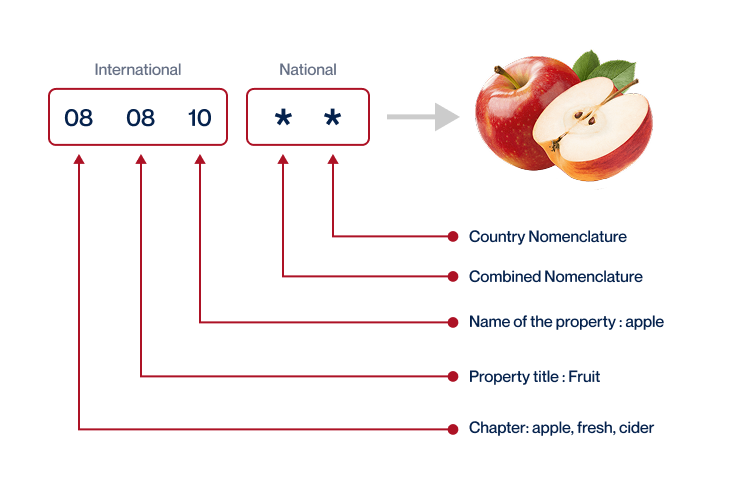
Step 3 – Calculate the Customs Value
In the realm of international trade, ‘Customs Value’ is the magic number that customs uses to calculate your duty and taxes, and yes, it’s different from your product’s price. Imagine you’re importing beautiful Qatari carpets to Greece. Your carpet price might just be $1,000, but your Customs Value is this price increased with shipping and insurance. This is known as the CIF value.
Take for instance, if you’re shipping those carpets for $200 and paying $50 on insurance, your CIF value becomes $1,250. Customs uses this CIF value, and not just your carpet price, to calculate duties. Knowing and calculating your Customs Value upfront helps you avoid surprising costs and makes your Greek imports run smoothly.
Step 4 – Figure out the applicable Import Tariff
When shipping goods internationally, it’s vital to understand the concept of import tariffs. These are taxes paid on goods shipped into a country, and they vary depending on the type of goods and their origin. For shipments from Qatar to Greece, which is a member of the European Union, you’ll use the TARIC System – European Customs to locate your specific tariff.
This is achieved by inputting the Harmonized System (HS) code of your item, which you identified earlier, and the country of origin, in this case, Qatar. Once the data is entered, the system will display the relevant duties and taxes for your product.
Let’s say, for example, you’re importing leather handbags (HS Code: 420221). The TARIC system will show a duty of 3% (for illustrative purposes). If your Cost Insurance and Freight (CIF) value is $10,000, you’ll calculate your duty as follows:
Duty = CIF value x Duty rate
= $10,000 3/100
= $300
Thus, the import duty in this example would be $300. This direct approach makes it easy for you to accurately determine your shipping costs and avoid any unpleasant surprises.
Step 5 – Consider other Import Duties and Taxes
Once your goods have crossed into Greece, it’s crucial to understand that, apart from the standard tariff rate, other import duties may apply depending on the origin and the product type. For instance, there could be excise duty, typically imposed on specific goods like alcohol or cigarettes. Anti-dumping taxes might come into play if Greece perceives your product is priced below fair market value, to protect its domestic industries.
The most noteworthy tax is the Value Added Tax (VAT). Import VAT is calculated on the CIF value (Cost, Insurance, and Freight) of the goods, plus any import duties and taxes charged. Let’s illustrate with this hypothetical situation: if your product costs $1000, it’s shipped for $200, and the standard tariff rate is 12% – your total CIF value is $1344. Given Greece’s typical VAT rate of 24%, you’ll owe $322.56 in VAT.
Remember, these examples are imaginary – actual rates fluctuate. Always double-check current rates to align with your financial forecasting. By doing so, you avoid unexpected surprises and ensure smoother customs clearance.
Step 6 – Calculate the Customs Duties
Calculating customs duties on goods shipped from Qatar to Greece may seem daunting, but with the right insight, the process becomes straightforward. Here, you’ll consider three fundamental values – customs value (C), VAT (V), and anti-dumping taxes (A). Let’s break it down with three examples,
Firstly, goods with a customs value of $1000 and a customs duty rate of 5% will cost you $50 (5% of $1000) in customs duties. That’s straightforward; no VAT involved.
Secondly, if VAT is in play at, say, 20%, add the value of the goods and customs duties ($1000 + $50), then work out the VAT. In this case, the VAT would be $210 (20% of $1050).
Finally, let’s consider a scenario including anti-dumping taxes at 10% and an Excise Duty of 15%. Add the customs value, customs duties and anti-dumping taxes ($1000 + $50 + $100). Then, calculate VAT ($230; 20% of $1150) and Excise Duty ($172.50; 15% of $1150).
Understanding this math is essential, but why not free up your mental energy to focus on what you do best – growing your business? Let DocShipper manage your customs clearance anywhere in the world, ensuring that you never overpay. Contact us for a free quote in less than 24 hours. You prioritize your business, and we’ll handle the rest.
Does DocShipper charge customs fees?
DocShipper, as your custom broker in Qatar and Greece, handles the intricate process of customs clearance, with a charge for the service but not for any customs duties or taxes. Here’s the thing- duties and taxes are government-imposed and paid directly to them not us. We ensure transparency, providing you with all paperwork from the customs office indicating exact charges – you’ll only ever pay what’s required by the government, nothing more. Consider it like a restaurant bill – while we prepare and serve the ‘meal’ (customs clearance), the ‘ingredients’ cost (duties, taxes) goes straight to the market (government).
Contact Details for Customs Authorities
Qatar Customs
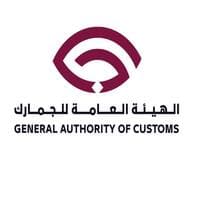
Official name: General Authority of Customs, Qatar Official website: www.customs.gov.qa/
Greece Customs
Required documents for customs clearance
Unsure about customs clearance paperwork? Let’s clear up the confusion. In this section, we’ll delve into essentials like the Bill of Lading, Packing List, Certificate of Origin, and Documents of Conformity (CE standard). No more daunting documents! Get ready to handle your freight like a pro.
Bill of Lading
Think of the Bill of Lading as your shipment’s passport in its journey from Qatar to Greece. It’s a critical document that transfers ownership of the freight once payment is made. Consider this scenario: you’re shipping 500 handcrafted carpets by sea. Your Bill of Lading—neatly detailing quantity, origin, destination, and payment terms—ensures your buyer assumes ownership after payment.
Want a smoother, paperless experience? Opt for an electronic, or ‘Telex’, release. It extinguishes the original document, enabling swift digital transactions. For air cargo, similar information appears on the AWB (Air Waybill). Pro tip: Accurately complete your document but don’t hesitate to collaborate with your logistics partner to ensure no errors, so your cargo sails—or flies—smoothly toward its destination.
Packing List
A Packing List is arguably your best friend when shipping goods from Qatar to Greece, regardless of whether you choose sea or air freight. This document details the exact contents of your shipment – like a vigilant guard who knows every nook and corner of your packages. Imagine you’re transporting medical equipment. Your Packing List will outline specifics, such as 50 heart monitors, 20 ECG machines, etc.
Getting this right is your responsibility. Why? You’re essentially guiding how customs officials in both Qatar and Greece inspect your cargo. If the list is accurate, the clearance process can be smoother and faster – a win-win for everyone. So, don’t treat creating a Packing List as a mundane task; treat it like creating a roadmap to successful shipping. That’s the power of precision and accuracy!
Commercial Invoice
Shipping goods from Qatar to Greece? Your Commercial Invoice is crucial. It’s not just a sales receipt – it contains vital data, like product details, the buyer and seller’s information, and the terms of delivery, aiding hassle-free customs clearance. This legal document acts as a record of the transaction and is fundamental in the calculation of customs duties.
Omissions or errors can bring costly delays, or worse, seizure of goods. So, triple-check the invoice, ensure it aligns with your other documents like the Bill of Lading or Airway Bill. Remember, useful data and accuracy are a surefire way to a smoother shipping process between Qatar and Greece.
Certificate of Origin
Navigating customs between Qatar and Greece? The Certificate of Origin (CoO) is your key. Let’s say you’re shipping solar panels made in Qatar. To verify their Qatari roots, a CoO is essential. By declaring the goods’ country of manufacture, this document ensures customs compliance and expedites clearance procedures. What’s more, Greece and Qatar have established preferential trade terms. So, your CoO could imply lower customs duties on your shipment. Always remember, proof of origin isn’t just another formality in international trade, it opens advantageous opportunities like cost saving in duty pay! So, keep that CoO ready and step towards a seamless shipping experience.
Certificate of Conformity (CE standard)
Shipping goods between Qatar and Greece? You’ll need a Certificate of Conformity, specifically the CE standard. This isn’t just a stamp of quality assurance, but an essential requirement for most products entering the European market. It tells customs that your product conforms to EU safety, health, and environmental protection standards. Unlike quality assurance, which focuses on process consistency, CE marking is about meeting specific benchmarks.
Interestingly, it’s akin to the FCC Declaration of Conformity in the US. If you’re shipping electronics, toys, machinery, or medical devices to Greece, ensure they’re CE certified. Not having this can halt your goods at customs, creating costly delays. To streamline your shipping process, check compliance early, preferably during the manufacturing stage.
Your EORI number (Economic Operator Registration Identification)
When transporting goods between Qatar and Greece, your EORI number becomes your magic key that streamlines the whole process. What’s an EORI number? It’s like your business passport for global trade, and every importer or exporter in the EU needs one. The great thing is – once you register for an EORI in Greece, you can use it across the EU. You see, the EORI number, this unique identification code, is used to track the movement of goods across EU borders. It keeps tabs on your business activities and ensures that all your transactions are on the record.
Don’t have one yet? No worries. Registering is simple and can be done online at your national customs website. Remember, not having an EORI number can cause delays at customs, which might hold up your goods indefinitely, and that’s the last thing you want for your business. So, double-check and ensure you have your EORI number when shipping between Qatar and Greece. Now you’re all set to conquer the global trade!
Get Started with DocShipper
Prohibited and Restricted items when importing into Greece
Ever wondered why your shipped goods are stuck in Greek customs? You might have sent prohibited or restricted items. Not knowing this list can make importing into Greece a torturous task. Be in the know: avoid confusion, save time, and money.
Are there any trade agreements between Qatar and Greece?
Yes, there are trade agreements between Qatar and Greece which might impact your shipping between these two countries. While no Free Trade Agreements (FTAs) or Economic Partnership Agreements (EPAs) exist, both countries have deepening trade relationships with ongoing initiatives. Greece and Qatar maintain thriving commercial ties, potentially signaling future opportunities. Though no specific infrastructure projects like railways are underway, active dialogue continues, encouraging closer trade connections. Understanding these dynamics can help you navigate the business landscape more strategically.
Qatar – Greece trade and economic relationship
Qatar and Greece have built a steadfast economic relationship over the past decades. Although historically the ties between the two nations weren’t notably strong, the recent shift with Qatar investing more than $1 billion in Greece showcases a significant economic relationship. Key sectors including infrastructure, tourism, and energy are seeing substantial Qatari investments, thus fostering bilateral ties.
Qatar exported $49 million worth of goods to Greece in 2022, including Petroleum Gas ($18.2 million), Ethylene Polymers ($16.6 million), and Ammonia ($10.6 million). Over the last 27 years, exports from Qatar to Greece have shown consistent growth, with an annualized rate of 37.9%, starting from $8.31 thousand in 1995 and reaching $49 million in 2022.
Your first steps with DocShipper
Additional logistics services
Warehousing
Finding the right warehousing service can feel like a maze, especially when factoring in the need for specific conditions like temperature control for sensitive cargo. Understanding these complexities, we offer tailored warehousing solutions between Qatar and Greece. More info on our dedicated page: Warehousing.
Packing
Proper packaging is critical when shipping between Qatar and Greece. A minor slip-up can cause product damages, triggering losses. With a reliable agent, services extend to repackage your goods - be it ancient Greek sculptures or Qatari dates. Imagine a fragile artwork, repackaged with cushioning materials to withstand the journey, or vacuum-sealed edible goods retaining freshness till delivery. That's the value of professional packaging and repackaging. Learn more on our page: Freight Packaging.

Transport Insurance
Cargo insurance is a must to safeguard your shipment beyond what a fire insurance policy covers. Think about it - while traversing unpredictable seas, your goods face varied risks beyond just fire, such as weather-related damage or theft. This is where cargo insurance steps in, delivering peace of mind by covering potential losses. For instance, it could reimburse you if your Greek olives spoil en route, thereby minimizing your risk. Learn more on our dedicated page: Cargo Insurance.
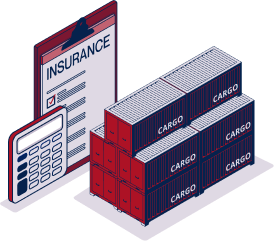
Household goods shipping
Transporting treasured possessions between Greece and Qatar? Our professional expertise takes the hassle out of moving tiaras or taxidermy. We handle each unique, fragile or bulky item with exceptional care. Imagine your grandmother's antique vanity making its journey smoothly, no bumps or scrapes, safely delivered to your new Qatari home. Flexibility in our services ensures your personal effects journey is tailored to your unique needs.
Procurement in Thailand
Swiftly bridging Greece to Qatar, DocShipper assists companies in sourcing from regions like Asia and East Europe. With their expertise, they make procurement a breeze, overcoming language barriers and guiding you smoothly through every step. Picture this: an ideal supplier in Asia is just a communication away with no language hurdles. Sounds good? Discover more on our dedicated page: Sourcing services.

Quality Control
Quality control is fundamental to your Qatar-Greece trade journey, eliminating manufacturing flaws before they land in Greece and wreak havoc on your business. Think of a furniture exporter accidentally shipping non-compliant pieces susceptible to Greece's humid summers - costly returns ensue. We ensure your goods meet the respective market standards, rendering such unfortunate scenarios implausible.

Conformité des produits aux normes
Ease your shipping worries with our Product Compliance Services. Ensuring conformity to respective regulations is vital, keep your goods from being held up at customs. We're here to help, offering meticulous lab testing to confirm regulation compliance and secure necessary certification, giving your shipment the green light. Think of it as your stress-free ticket to smooth, efficient transport.
